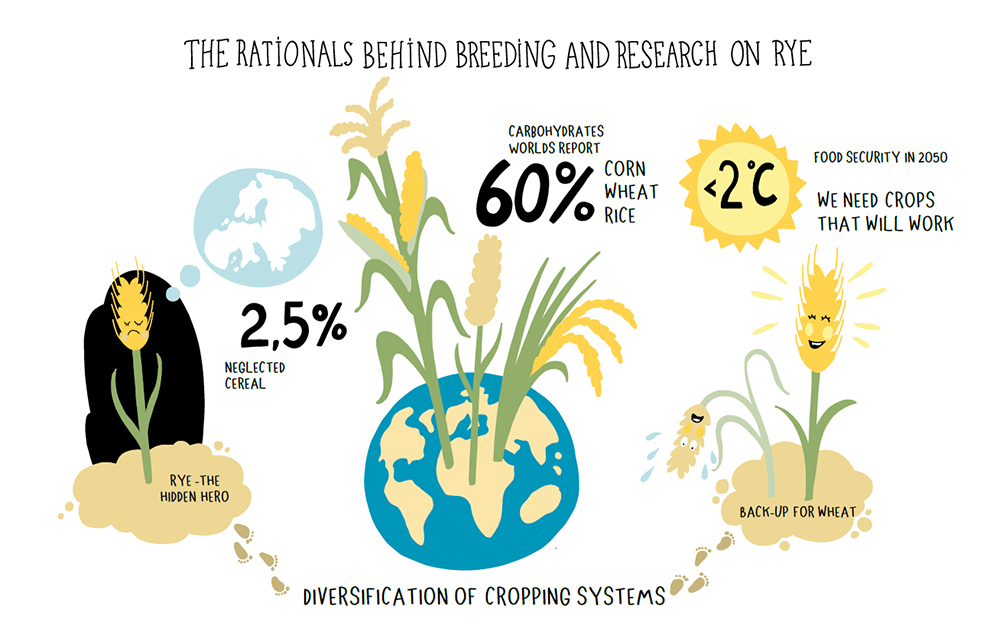
Cereal production experiences an ongoing intensification and specialisation at the expense of minor cereals including einkorn, emmer, oat, rye and spelt. Together, maize, rice and wheat are the single most important item in the human diet, accounting for an estimated 60 percent of the world’s food calorie supply. This specialisation leads to continuous loss in agricultural biodiversity and marginalization of traditional land management systems. A diversification of cropping systems by minor cereals offer benefits with respect to agronomic management, grain processing, nutritional quality, health promotion and numerous ecosystem services. Enhanced plant breeding efforts are of strategic importance to improve the competitiveness of minor cereals in European and Canadian agriculture.
Rye is the only cross-pollinated small-grain cereal, which results in a unique complexity concerning the genetic improvement of rye and underlines the need for rye-specific research concepts. Research conducted in RYE-SUS supports the Canadian and European farming sector with improved and more resource efficient rye varieties for a secure food supply.

